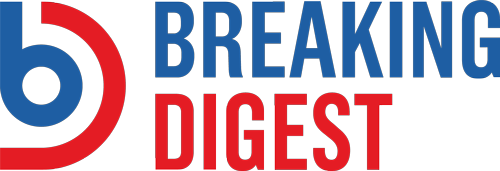
The House Judiciary Committee has released a report proving that former CIA contractors colluded with the Biden campaign to discredit the Hunter Biden laptop story just weeks before the 2020 presidential election. Their report on Tuesday revealed a coordinated effort between the Biden campaign and high-ranking former intelligence officials to label the laptop story as “Russian disinformation” and manipulate public perception.
In October 2020, just days before the presidential election, 51 current and former intelligence officials signed and published a letter baselessly claiming that the contents of Hunter Biden’s “laptop from hell” had “all the classic earmarks of a Russian disinformation operation.”
This was a lie, and they ALL knew it was a lie. The fake news media ran with the story anyway. And the fake news even used it during the debate to bash President Trump.
On Tuesday, the House Judiciary Committee released the following details.
● High ranking CIA officials, up to and including then-CIA Director Gina Haspel, were made aware of the Hunter Biden statement prior to its approval and publication. Because several former senior intelligence officials signed the statement, the PCRB sent the draft statement to the CIA’s then-Chief Operating Officer (COO) Andrew Makridis, who said he subsequently informed then-Director Haspel or thenDeputy Director Vaughn Frederick Bishop that the statement would be published soon. Senior CIA leadership had an opportunity at that time to slow down the CIA’s process for reviewing publication submissions and ensure that such an extraordinary statement was properly vetted.
● Some of the statement’s signatories, including Michael Morell, were on active contract with the CIA at the time of the Hunter Biden statement’s publication. Throughout the course of the Committees’ investigation, the signatories claimed to not have had access to any classified information when asserting that the allegations surrounding Hunter Biden’s laptop had “all the hallmarks” of Russian disinformation.
However, at the time of the statement’s publication, at least two signatories—Morell and former CIA Inspector General David Buckley—were on the CIA’s payroll as contractors. Due to purported operational concerns, the CIA declined to declassify the entire universe of signatories who were on active contract. In addition, some signatories to the Hunter Biden statement also had special “Green Card” access to the CIA at the time of the statement’s publication, allowing them to gain entry to secure CIA facilities.
● After publication of the Hunter Biden statement, CIA employees internally expressed concern about the statement’s politicized content, acknowledging it was not “helpful to the Agency in the long run.” At least one employee found it “[i]nteresting to see what was submitted and approved” when discussing media talking points that the statement’s co author, former Senior Intelligence Service Officer Marc Polymeropoulos, submitted related to the statement.
When discussing Polymeropoulos’s talking points, another CIA official stated, “It appears [Polymeropoulos] is actively involved in a pro-Biden campaign and may be disclosing classified information in his efforts.” The CIA’s internal review board, known as the Prepublication Classification Review Board (PCRB), determined that Polymeropoulos’s talking points contained classified information that had to be removed prior to publication.
“The new information included in this report, based on new testimony and declassified documents, shows the potential dangers of a politicized intelligence community. In the waning days before the 2020 presidential election, 51 intelligence community officials rushed to draft and release a statement using their official titles, presumably to convey access to specialized information unavailable to other Americans. The statement was conceived following a conversation with a senior Biden campaign official and designed explicitly to provide talking points to the Biden campaign to discredit politically damaging allegations. Some of the signatories of the statement were on the CIA payroll at the time as contractors and others had special access to CIA facilities. Even Michael Morell—before the Committees learned of his contract with the CIA—acknowledged, “It’s inappropriate for a currently serving staff officer or contractor to be involved in the political process,” the House Judiciary Committee said.
"We knew that the rushed statement from the 51 former intelligence officials was a political maneuver between the Biden campaign and the intelligence community. Now with this interim report, we reveal how officials at the highest levels of the CIA were aware of the statement and…
— House Judiciary GOP 🇺🇸🇺🇸🇺🇸 (@JudiciaryGOP) June 25, 2024
The CIA was not alone in its deception and manipulation during the 2020 election.
In June 2023, the House Ways and Means Committee released an interview with Gary Shapley, Jr., conducted on May 26, 2023.
In the report, the committee included this piece of information:
In October 2019, the FBI became aware that a repair shop had a laptop allegedly belonging to Hunter Biden and that the laptop might contain evidence of a crime. The FBI verified its authenticity in November of 2019 by matching the device number against Hunter Biden’s Apple iCloud ID.
Leading up to the 2020 U.S. presidential election, the Hunter Biden laptop story became a hot button issue in the political sphere. When the New York Post published articles based on emails found on Hunter’s laptop, exposing potentially compromising business dealings involving his father, Joe Biden, many prominent Democrats and former intelligence officials quickly baselessly labeled the story as “Russian disinformation.”
Citing concerns over foreign interference in the election, this statement was supported by 51 former intelligence officials who signed onto the claim, emphasizing their professional assessment despite acknowledging that they had no direct evidence of Russian involvement.
Prominent Democrats echoed these sentiments, warning of the risks of foreign interference and cautioning the American public against taking the laptop story at face value. The Biden campaign leveraged this narrative during debates and public appearances, with Joe Biden himself referencing the intelligence officials’ statement to deflect attacks from then-President Trump during a presidential debate.
Social media platforms also played a role by preventing dissemination of the story, citing concerns over spreading potentially harmful “disinformation.” These actions contributed to the prevailing narrative that the laptop story was not credible and should not be taken seriously, significantly shaping public perception during a critical period of the presidential campaign.



